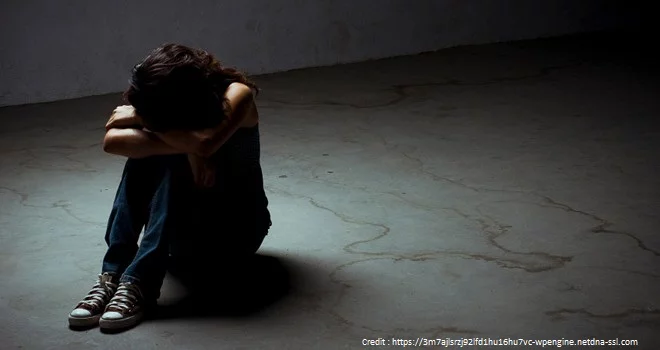Few people want to relive the pain of old traumas, and yet allowing the brain time to process these feelings and emotions is essential to healing. Getting the right kind of support in this process is the first step to overcoming this struggle.
You feel as though you are in a rut, and you’re not completely sure why. While you have a good job and some close friends, your romantic relationships are often toxic and fraught, you struggle with stress management, and you feel like no one really understands you. You are depressed and anxious, and uncertain about the future. On your worst days, you feel like you can’t rely on anyone. Could past trauma be at the root of your problems?
Experiencing trauma can dramatically change the way you feel about and react to the world around you. Many struggle to process the complex emotions and impacts of a traumatic event, or manage the long-term effects of trauma experienced through ongoing neglect or abuse. Unfortunately, much like a physical injury, the only way to heal the emotional pain of trauma is through focused attention and treatment, allowing the mind the time it needs to process traumatic experiences and begin to recalibrate to our current reality.
When we bury our traumas, or try to avoid potential triggers, we disallow ourselves the time we need to heal. While on the surface things may seem okay, the impacts of trauma filter through many other aspects of life – influencing relationships, overall mental health, and even the potential for addiction. Facing your trauma, although difficult, positively affects your ability to truly heal and move forward into a happier, healthier, and more balanced life.
How Does Trauma Affect You?
Trauma can be inflicted in different ways. Some people experience trauma through a singular impactful event, such as being the victim of an assault or surviving a natural disaster. Others are exposed to chronic trauma through bullying, having emotionally unavailable or abusive parents, or being partnered in a toxic relationship. Regardless of the type of trauma experienced, its impacts are potentially life-altering. When trauma is not properly addressed, it can lead to long-term impacts on mental health and personal relationships, and a significantly higher risk for substance abuse and addiction.
Trauma and Mental Health
Unresolved trauma can contribute to the development of a range of serious mental health disorders including:
- Post-traumatic stress disorder (PTSD) – This condition develops in direct response to a specific traumatic event, and is characterized by symptoms such as intrusive thoughts, altered moods and thought patterns, changes in emotional reactions, and avoidance of trauma triggers.
- Complex post-traumatic stress disorder (CPTSD) – CPTSD develops after exposure to repeated trauma, such as experiencing or witnessing ongoing domestic violence, or suffering childhood abuse or neglect. CPTSD presents with similar symptoms as PTSD, as well as persistent challenges in sustaining healthy relationships.
- Depression – Depression can also develop following trauma, and symptoms may overlap with those of CPTSD and PTSD. Signs can include sleep disturbances, loss of interest in previously enjoyed activities, isolation, irritability, hopelessness, sadness, and lack of focus or motivation.
- Adjustment disorder – Typically diagnosed three months or more from when the trauma occurred, this disorder occurs as a reaction to, or when someone is unable to cope with, the aftereffects of a traumatic event. Symptoms may be seen as out of proportion to the event itself, and include things like anxiety, persistent crying, hopelessness, and suicidal ideation.
- Reactive attachment disorder – This occurs primarily between children and their caregiver, and is often a result of separation or estrangement from their parents. Symptoms include irritability, depression, and fearfulness.
Part of the development of these disorders is related to the changes in the brain that happen following trauma. Research has shown that when faced with extreme stress, the body and brain go into a survival mode known as the “freeze state.” During this period, people experience symptoms such as:
- Not being able to think clearly
- A feeling of being out of your body; disassociating
- Slowed breathing, heart rate, and blood pressure
- Having difficulty speaking
- Emotional numbness
- Feeling or becoming physically ill
When trauma is not treated, triggers encountered in everyday life may cause these symptoms to occur repeatedly, contributing to poor overall mental health and exacerbating other conditions.
Trauma and Relationships
Exposure to trauma, including that experienced in early childhood, can have lasting and profound effects on interpersonal relationships. These can be related to changes in mood or emotions as a result of the trauma, as well as increased social isolation due to attempts to avoid trauma triggers.
Additionally, many who have experienced trauma find that it is impacting their sex lives. This is partially due to the shared hormonal and neurological networks of fear and arousal that are active in both trauma responses and sex. When you are turned on, the brain sends out a release of hormones like norepinephrine. This is the same hormone that floods the brain when you experience intense fear. If you have experienced trauma, it can be difficult for the brain to separate the normal release of this hormone when you’re in an intimate moment from the association of this feeling with trauma, resulting in panic attacks or flashbacks. This can occur even for those who may not be consciously aware of their trauma, such as those who lived through traumatic childhoods.
Trauma and Addiction
Many who struggle with addiction use substances to cope with the lingering effects of trauma. Trauma can cause a chronic disruption of the body’s stress regulation system. This then results in a feeling of hyperarousal, or constant alertness, and anxiety that some may attempt to self-medicate with drugs or alcohol.
In other cases, trauma may leave people feeling numb and struggling to connect emotionally. This can also fuel a potential for addiction, as alcohol or stimulants can promote feelings of warmth and connectedness that might otherwise be absent.
Four Key Reasons Why Should You Face Your Trauma
1. It helps you heal
Addressing your traumas allows your brain the opportunity to work through the traumatic event in order to heal. While aspects of this process can be painful and frightening, the long-term mental and physical benefits will ultimately lead to a better quality of life.
2. It makes you stronger
Facing trauma helps to improve your resilience, strengthening your ability to manage stress and hardship and fostering the development of new tools by which to cope.
3. It helps you understand your emotions
As you work through your traumas and begin to untangle how it has impacted you, it can help reveal some of the reasons behind your emotional responses and reactions. This can help you be more in touch with your emotions, and in better control of them in stressful situations.
4. It can help prevent future trauma
Processing your traumas allows you to reflect on what happened, and if your current patterns of behavior are unintentionally setting you up for further trauma. The wisdom you gain from your experience can be used to protect yourself and others without limiting your ability to enjoy your life.
How Do I Start Addressing My Trauma?
Like treatment for any injury, the psychological injury of trauma is most effectively treated when you have a strong support network. This includes mental health professionals, who can safely guide you in understanding and processing a traumatic past, as well as loved ones who can provide moral support and comfort as you move through this difficult process. Support groups that bring together people who have had similar experiences can also be reassuring and useful as you can share your challenges, fears, and ideas with others who truly understand what you’re going through.
The Benefits of Trauma-Informed Therapy
Trauma-informed therapy is different from traditional therapy in that trauma-informed therapeutic techniques work to specifically understand the consequences of trauma in order to promote a full, lasting recovery from mental health disorders and addiction. They combine trauma-focused approaches with cognitive behavioral therapies to explore and address the impacts of trauma. These techniques typically contain a number of specialized components, including:
- Building skills – In order to regulate the challenge and discomfort caused by trauma, clients learn new coping skills to promote relaxation and manage emotions in stressful situations.
- Changing patterns – Trauma causes specific patterns of thought to form that are often at odds with the reality of the present. Trauma-informed therapy helps to reform these patterns to adapt out of a trauma mindset.
- Gradual exposure – Clients are slowly and gently reintroduced to trauma triggers in order to help lower fear or avoidance.
- Education – Therapists help the clients to learn more about trauma, how it impacts the brain, and its long-term effects in order to better understand their reactions and normalize their experiences.
- Trauma narrative – Therapists help guide their clients as they process their traumas in a safe and supportive space.
These components are key in helping people express and come to terms with their trauma so that they may be able to move forward in a healthier way.
The Dawn’s Trauma Treatment Programme

The Dawn Wellness Centre and Rehab Thailand offers a highly-specialized and extremely effective Trauma Treatment Programme for individuals suffering ill mental health due to a traumatic or distressing experience they either witnessed or were directly involved in. This programme depends on the complexity of the client’s condition and their resiliency, and can last anywhere from 28-90 days.
Why Clients Choose Trauma Treatment at The Dawn Rehab Thailand
At The Dawn, we have designed our programme to include both psychological and physical components for truly holistic healing, including:
- Trauma reduction therapy (TRT)– treats the effects of childhood trauma and the resulting developmental immaturity and codependency
- Eye movement desensitization and reprocessing (EMDR) – a nontraditional technique designed to diminish negative feelings associated with memories of traumatic events
- Trauma-focused cognitive behavioral therapy (TF-CBT) – a form of CBT that is especially sensitive to the unique problems of those with PTSD and mood disorders resulting from abuse, violence or grief
- Visualization therapy – a wellness technique that harnesses the brain’s positive response to images to help manage one’s emotions and challenges more effectively
- Trauma release exercises (TRE) – series of exercises that assist in releasing deep muscular patterns of stress, tension and trauma stored in the body
- Transcranial magnetic stimulation (TMS) – a cutting-edge technology that improves symptoms of depression, anxiety, trauma and addiction
A Safe Haven: Trauma Treatment in Thailand
Located on the outskirts of Chiang Mai along the banks of the beautiful Ping River, The Dawn is an oasis of calm surrounded by picturesque rice fields and traditional Thai villages. Our resort-style facilities in lush gardens are a world away from the triggers and stressors of home, but offer residents all the comforts and amenities they need to relax and heal.
With no more than 30 residents at any time, our clients feel at home and safe at The Dawn, enabling them to focus on getting better. Internationally accredited by the American Accreditation Commission International and licensed by the Thai Ministry of Health, The Dawn offers professional, high-quality, personalized care to all its clients.
Call us today to learn more about how we can help you face your trauma and live a full, healthy life.
Related Posts
 Trauma-Focused Cognitive Behavioural Therapy – An Effective Method of Overcoming Trauma
Traumatic life events can have a severe impact on anyone who goes through them. However, children and adolescents are especially vulnerable to the effects of trauma. It can quickly take...
Trauma-Focused Cognitive Behavioural Therapy – An Effective Method of Overcoming Trauma
Traumatic life events can have a severe impact on anyone who goes through them. However, children and adolescents are especially vulnerable to the effects of trauma. It can quickly take...
 Trauma Therapy – How to Overcome a Painful Past and Create a Better Future
Many people who seek trauma therapy suffer consequences of one or more traumatic events in their life. Even though many find ways to process trauma effectively and eventually resolve their...
Trauma Therapy – How to Overcome a Painful Past and Create a Better Future
Many people who seek trauma therapy suffer consequences of one or more traumatic events in their life. Even though many find ways to process trauma effectively and eventually resolve their...
 Childhood Trauma: Causes, Symptoms and Treatment Techniques That Can Help You Move Forward
The National Institute of Mental Health in the United States defines childhood trauma as, ‘’The experience of an event by a child that is emotionally painful or distressful, which often results in...
Childhood Trauma: Causes, Symptoms and Treatment Techniques That Can Help You Move Forward
The National Institute of Mental Health in the United States defines childhood trauma as, ‘’The experience of an event by a child that is emotionally painful or distressful, which often results in...
 How Trauma Informed Therapy Works in Addiction Treatment
There is a proven link between past trauma and addiction, as those struggling with the after-effects of a traumatic experience seek ways to manage their symptoms. Understanding the role that...
How Trauma Informed Therapy Works in Addiction Treatment
There is a proven link between past trauma and addiction, as those struggling with the after-effects of a traumatic experience seek ways to manage their symptoms. Understanding the role that...





